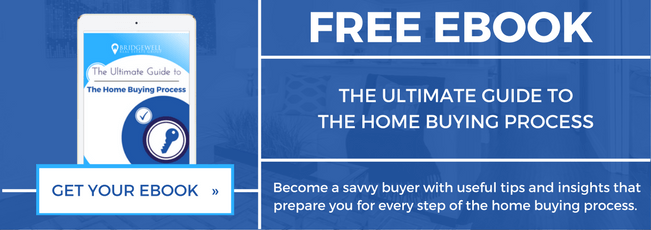Bank Appraisals for Mortgage Canada
Everything You Need to Know About Home Appraisals
Bank appraisals are a critical step for both the home buyer and the home seller.
For a buyer, an appraisal is often a requirement to obtain a mortgage. These therefore affect the seller as well, as it determines whether or not the buyer will be able to remove subjects on your home.
This blog goes through what an appraisal is, why it’s required, when it’s required, who pays for it, and the process.
We also discuss how appraised value is calculated, and what happens if the appraised value comes in lower than the agreed upon purchase price.
For everything you need to know about home appraisals for mortgages in Canada, keep reading!
What is an appraisal?
An appraisal is an unbiased estimate of the value of a home that is conducted by a third party appraiser. Lenders order them to ensure that the home is worth what you are paying for it, within reason.
You may wonder, why do lenders want an appraisal? From the investors view, if the market value is lower than the agreed upon sales price and the buyer defaults on the mortgage, then the lender may have issues selling the property for enough money to recover their investment. If the appraisal does come in low, then lenders will only lend on the appraised value and not the full purchase price.
Therefore, appraisals are conducted to protect the lenders in their loan investment to you, and the goal is to justify the amount that the purchaser has paid for the property.
When is an appraisal required?
An appraisal is typically required for purchasers that are low-ratio that have uninsured mortgages, or in other words, putting 20% or more down payment towards their home purchase.
Another common question is when is an appraisal not required. This is often the case when your down payment exceeds your loan amount, or for buyers that are already insured by CMHC. (putting less than 20% down)
However, when the value of the property is in question and the lender has reason to question the purchase price with relation to the actual value then an appraisal will likely be required.
Who pays for the mortgage appraisal & how much is it?
An appraisal is hired by the lender, but typically paid by the buyer. An appraisal is typically $350-500.
However, this depends on whom the buyer is using for their mortgage. It is common for the Big 5 banks in Canada to pay for the appraisal, and some mortgage brokers may also cover this bill as a part of their service.
How the Appraisal for Mortgage Process Works
If required, an appraisal is typically ordered once your offer to purchase has been accepted.
An appraisal is typically included as a part of your financing clause, so you should insist that your lender performs the appraisal during the subject removal period.
The appraisal will typically be done once the lender has already approved your income, and just needs to approve the property itself. In most situations 7 days is plenty of time for the lender to approve your income, the property, and have it appraised.
The steps to complete an appraisal are as follows:
-
The appraiser sets an appointment with the home owner or listing agent:
The lender will order the appraisal, and from there the appraiser will set up a time with the listing agent to inspect the property accordingly.
-
Property inspection by the appraiser:
The inspection of the property will take anywhere between 5-20 minutes. The inspector may ask questions regarding the age, recent updates and renovations, the age of key items like the roof, and strata related questions if applicable. The appraiser will usually take photos of the interior and exterior as well for their report.
-
Completing the report:
Once the appraiser has viewed your property they will do an extensive review of all comparable properties that have recently sold, or are relevant. Once all information has been reviewed and obtained, the appraiser will then reconcile the information in their report to arrive at reasonable market value of the property.
-
The final report:
The appraiser will send a copy of the report to your lender as per their request. You may or may not receive a copy of your appraisal report so it is important that you talk to your mortgage broker or professional to find out if your purchase price value is justified.
How does an appraiser estimate appraised value?
The appraiser’s main role is to gather information that aids in determining the current value of a property. They typically do this in 2 ways:
- Assessing the condition of the home
- Assessing recent sales and comparables
Condition of the Home
The appraiser will be looking for information such as condition of the property, interior size, exterior size, maintenance, upgrades, and the age of key items like the roof. They will also take in to consideration the location, neighbourhood, and overall desirability.
If strata, they may also ask questions about the strata and contingency reserve fund, amenities, special levies, or repairs done to the building.
Comparables
The most heavily relied upon component of coming up with the appraised value are recent comparables to the subject property, otherwise known as “comps.”
The appraiser will gather information on comparable sold properties in the area that are most similar to yours, and then make adjustments based on the pros and cons of each property compared to your home.
While recent sales in your neighbourhood, area, or building are the best representation of a reasonable market value, if the appraiser is limited they may also pull less-recent sales or similar homes in nearby areas or cities. They can also take other active, expired, or terminated properties in to consideration.
They may also pull on tax records and other public documents for verifications of actual sales prices in a market, as well as also use his/her past experiences creating appraisals for properties in the same or similar market.
Ultimately, the appraiser is just trying to determine if the price you paid for the property is reasonable based on the current market and what other buyers are willing to pay for similar properties.
What happens if an appraisal comes in low?
Unfortunately sometimes bank appraisals do not go as smoothly as one would hope, and the appraiser does not think a home is worth what the Buyer agreed to pay the seller.
If an appraisal comes in for less than the amount that you’ve agreed to pay, then the bank will only fund a mortgage based on the appraised value.
For example, if you agreed to pay $900,000 for a home but the appraisal value comes in low at $850,000, then the bank will only fund up to $850,000. This means that if you want to proceed with the purchase that you will have to find a way to fund the difference of $50,000 or come up with a larger down payment.
So what options if your appraisal comes in lower than the purchase prices? In these circumstances, a Buyer has 3 options:
-
Dispute the appraisal
Your mortgage broker can argue the appraisal and potentially send other comparables or an explanation to come up with a different value. The appraiser may take your comments in to consideration and potentially revise their amount, but they could also stay firm to their number and put you out of luck.
-
Get a second opinion
You can always try to get a second opinion or find another lender, and hope that the second appraiser comes back with a higher price and values it at what you offered.
-
Come up with the $$$ and fund the difference
Borrow the funds, or increase/take a portion out of your down payment to help make up the difference.
Protecting Yourself from Low Appraisals
There are preventative measures to make sure you protect yourself from low appraisals. Here are a few things you can do to help avoid low appraisals on your mortgage purchase:
-
Review comparables before you put the offer in
The bank appraisers and your realtor are going to be looking at the same comparable sales, and your realtor should be providing you comparables PRIOR to writing an offer to make sure that what you’re paying is justified. If you know the facts & have sales to support your offered price then you’ll know that you’ve made an informed decision and haven’t overpaid in the first place.
Related Article: Asking Price VS Market Value Explained
-
Make sure the listing agent takes an active role in educating the appraiser
The listing agent should be providing an active role in educating the appraiser about the benefits of the unit, condition of the home or building, and any upgrades or renovation when they let them in to the property. It’s also a good idea for the listing agent to create rapport and have knowledge about other sales that support the purchase price.
-
Have a rainy day fund just in case
In real estate, it’s safe to say that nothing ever goes perfectly, and with that being said there are hundreds of reasons why you should keep a rainy day fund in case things go sideways. Whether it’s miscalculated closing funds, more money for a down payment, or a difference in appraised value you’ll want to make sure you have access to money to help alleviate these stressful situations.
-
Work with an experienced realtor
Working with an experienced realtor that knows the market and how to determine market value will help to prevent you from overpaying, and in turn prevent a low appraisal. Working with a realtor is a FREE service when you are purchasing a home, and we’re there to guide you through the process, provide information on comparable sales, and help to keep you informed so you can make an educated decision. If you want an experienced realtor on your side to help you purchase, then give us a call.
—
Working with the right realtor that knows how to determine market value will help to prevent low appraisals and over paying. If you’re looking to talk to a realtor, then give us a call or text at 604-319-0200 or email hello@bridgewellgroup.ca to start a conversation.




